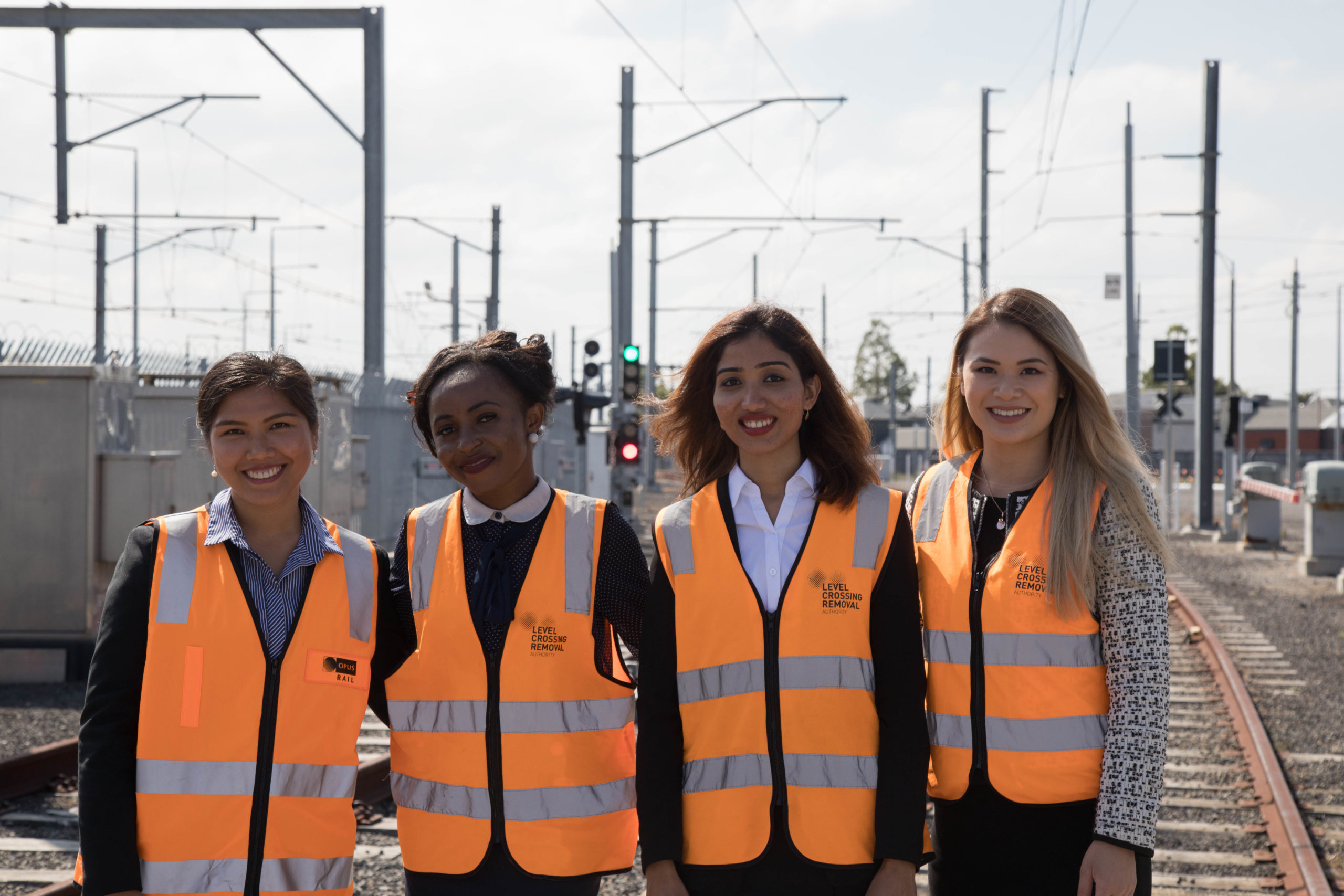2018 Award Winners Profile: Level Crossing Removal Authority
Award Winners Profile: 2018 Innovation and Impact Award
The winners of the 2018 Sustainability in Infrastructure Awards were announced at the 2018 Sustainability in Infrastructure Awards Dinner on 17 October 2018, in Sydney. The awards recognise and reward projects, assets, organisations and individuals who demonstrate leadership in advancing sustainable outcomes in infrastructure.
ISCA had the pleasure of presenting the 2018 Innovation and Impact Award to the Level Crossing Removal Authority (LXRA) for their Victorian Government led initiative Training for the Future (TFTF). This award recognises the Infrastructure Sustainability (IS) project or asset that exhibits the most outstanding implementation of an innovative practice and/or has made a significant and positive impact socially, environmentally or economically. This award is open to all ISCA members and industry partners.
Winners Profile
In 2016, the Level Crossing Removal Authority (LXRA) recognised a gap in existing inclusion policies for its projects. The Victorian Major Project Skills Guarantee mandated use of apprentices, trainees and cadets, however no targets existed for employment of broader disadvantaged groups, or inclusion of more sustainable social practices into projects or the infrastructure supply chain.
To address this LXRA consulted extensively with industry partners to create a Social Enterprise Strategy, and subsequently lead the development of the first major industry training program of its kind – the Victorian Government Initiative Training for the Future (TFTF).
A skills and industry development program aimed at creating a sustainable and inclusive talent, and supply chain pipeline for major rail infrastructure projects in Victoria. The TFTF’s aim is to create a diverse and sustainable workforce, while delivering long-lasting social and economic outcomes.



The LXRA objective is to act now to create a sustainable and prosperous future….”We unlock greater capacity, reliability and safety for rail commuters…..We leave a legacy for future projects…We share the journey with our stakeholders and the community.”
LXRA collaborated with eight major government and industry bodies from across rail and private sector infrastructure partners to deliver their initiative and programs. Launched on 16 February 2017, they implemented:
- The Training for the Future (TFTF) program: a suite of employment programs, including GEN44, GEN8, TRANSIT & GROW. Which target disadvantaged and marginalised cohorts, providing access to opportunities on major rail and infrastructure projects.
- Social Procurement Policy: which outlines a commitment to embedding social procurement into LXRA projects and promoting the use of social benefit suppliers, such as social enterprises and aboriginal businesses throughout the supply chain.
- Inclusion and Social Procurement Action Plan 2017.
- Aboriginal Inclusion Action Plan, and
- The Social Procurement Innovators Network: to increase industry collaboration and share learnings.
LXRA overcame several challenges to deliver this five-year program. Key challenges included, addressing industry concerns relating to sufficient social benefit suppliers in the marketplace by partnering with Social Traders and Supply Nation to match buyers and suppliers; Building capacity for social procurement into contracts, through incentive arrangements. Resulting in revised procurement practises and processes of construction partners; Foreseeing potential governance concerns and providing assurance of social benefit suppliers, through Social Trader’s certification processes and Supply Nation’s direct verification practises.
Currently in its first 18 months of delivery, the TFTF program is already delivering direct results. To date, 82 people from marginalised and disadvantaged backgrounds have gained employment, internship and cadetship opportunities as a direct result of the TFTF inclusion and capability programs. Results to date include:
- 114 marginalised or disadvantaged people from refugee and asylum seeker backgrounds (33.1%), Aboriginal backgrounds (5.6%) and people with a disability (2.8%) have completed the GROW program, with 23 securing employment as a result.
- A 24% average of female participation has been achieved across the programs. With the GEN44 and GEN8 internship programs currently achieving a 30% female participation rate.
Other highlights and achievements from the TFTF to date include, LXRA projects have spent $31.5 million with social benefit suppliers and aboriginal businesses; Investments in aboriginal businesses and employment through LXRA’s program of works has resulted in the removal of level crossings with 367,617 aboriginal employment hours; The first Social Innovators Network was convened in July 2018 to complement the monthly subcommittee meetings to share best practices of effective social impact engagements; Tier 1 contractors such as John Holland and MCD Group have adopted the social procurement policy, and are applying it to their own supply chain, and Western Distributor, another Victorian Transport agency, has adopted a social procurement and workforce inclusion plan.
This initiative has allowed smaller social benefit suppliers to bid for work, helped establish new aboriginal businesses, and increased employment of disadvantaged workers in our industry.
Congratulations to the Level Crossing Removal Authority (LXRA) and their partners in the continued success of this program, and for winning the 2018 Innovation and Impact Award.
Keep an eye out as information for the 2019 Sustainability in Infrastructure Awards submissions dates and categories become available.

